The 32 greatest '90s actors
As America logged online, these were the greatest actors who blew up the big screen

It’s not easy to describe the 1990s. Characterized by the meteoric rise of the internet, cable television and 24-hour news, and alternative music, the 1990s also saw an influx of new movie stars whose backgrounds were as diverse as, well, themselves. But who in the 1990s actually deserve recognition as its greatest actors on the silver screen?
As the 1980s gave way to the 1990s, many factors influenced who, and what, appeared in movie theaters everywhere. The rise of the internet and rental video stores made otherwise hard-to-see small budget indies and foreign-language productions a lot easier to access for everyday people.
Blockbusters became inconceivably bigger, with filmmakers deeply invested in the rapid sophistication of computer generated visual effects (VFX) and studios keenly interested in their commercialization prospects; after Star Wars toys flew off the shelves in the 1980s, producers began to see movies as new wells for similar riches.
While studios held greater creative control over writers and directors than they had in years, actors were still the primary currency and the most bankable stars were seemingly always in demand. Here are just 32 of the greatest actors of that time period.
32. Jet Li
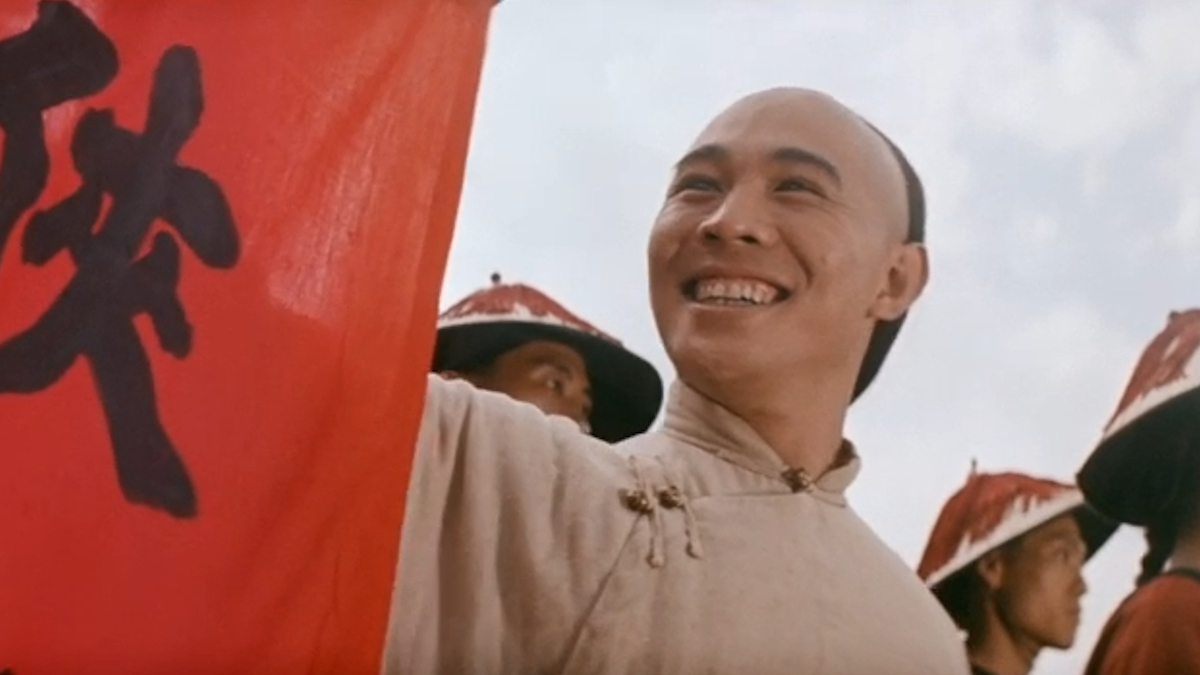
Martial arts superstar Jet Li didn’t make his international film debut until Lethal Weapon 4 in 1998, but his stardom was unmatched throughout Asia, particularly China, throughout the 1990s. A former Wushu champion, Jet Li got his stage name through a Philippine PR company who named him “Jet” to evoke a fierce fighter plane taking off. He started making movies in the 1980s, but by the 1990s his stardom was solidified through action epics like The Master, Fist of Legend, High Risk, Black Mask, and the popular Once Upon a Time China series. By the 2000s, Jet Li became the new face of martial arts action internationally, with Hollywood features like Cradle 2 the Grave, Kiss of the Dragon, and Unleashed.
31. Tommy Lee Jones
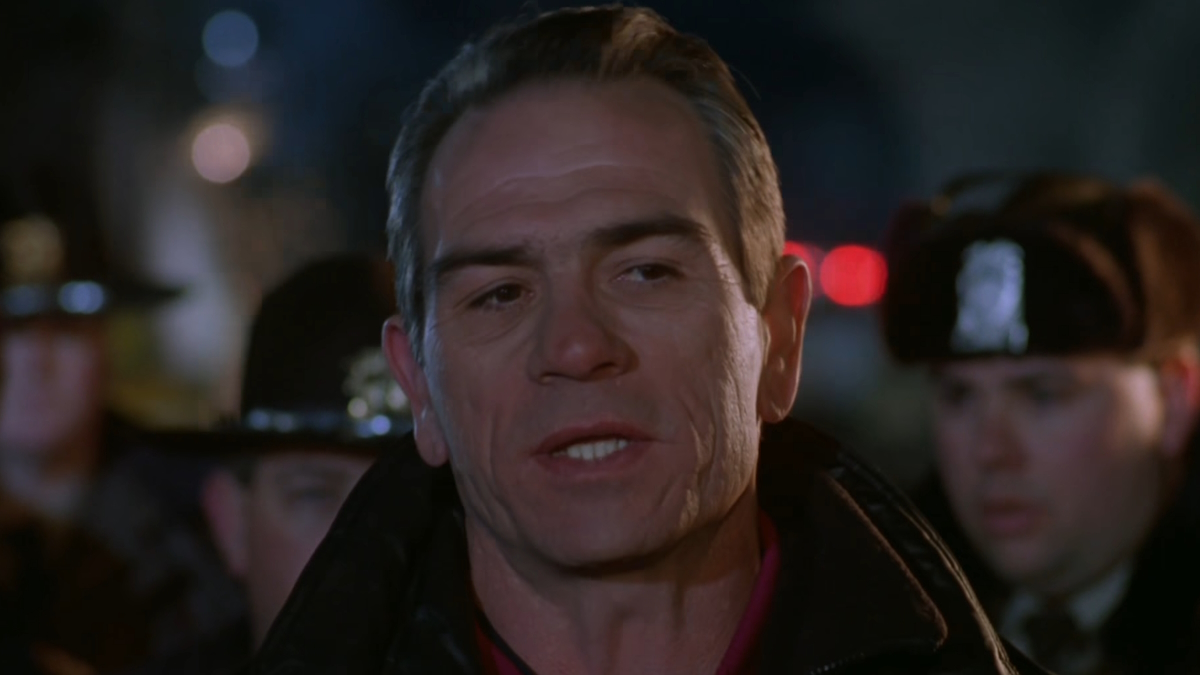
A former college football athlete, Tommy Lee Jones began his acting career in the late 1960s. While his profile grew in the 1980s, his film career took off in the 1990s, starting with Oliver Stone’s political blockbuster JFK, for which he earned his first Oscar nomination. His hot streak continued with mega-hits like The Fugitive (in an Oscar-winning performance), Batman Forever, Volcano, The Client, Natural Born Killers, and the sci-fi buddy cop comedy Men In Black, co-starring Will Smith. Jones’ career continued well into the 21st century, earning another Oscar nomination for his role in Steven Spielberg’s 2012 historical drama Lincoln.
30. Frances McDormand
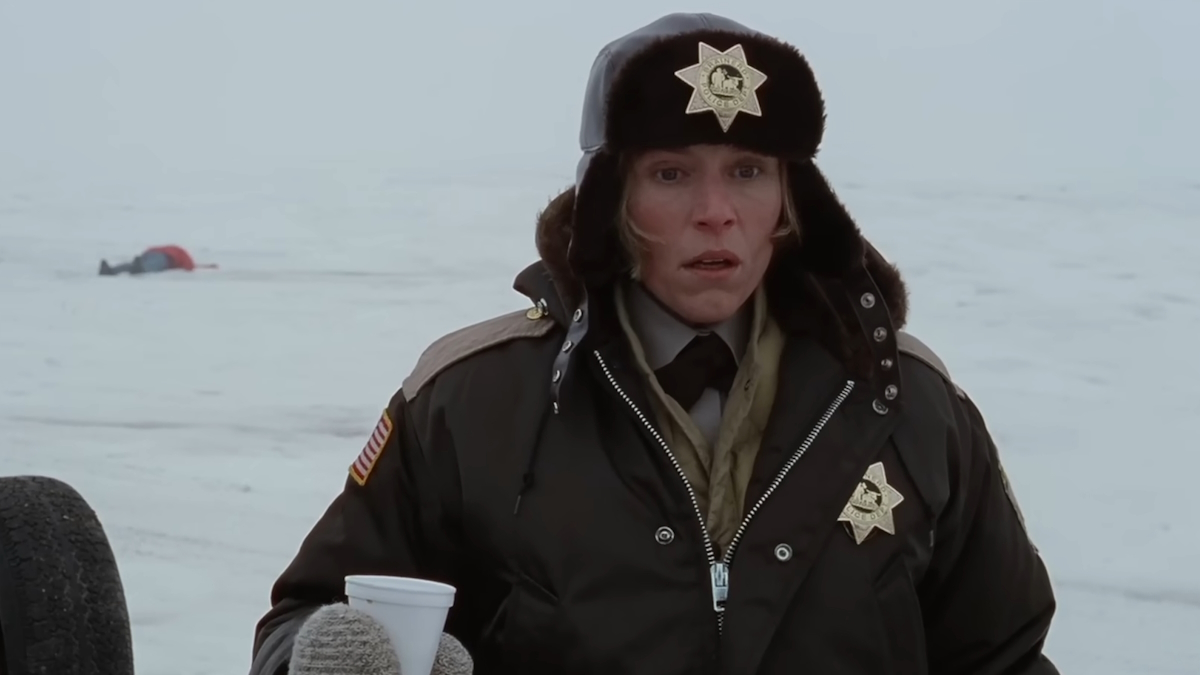
A recipient whose Oscar, Emmy, and Tony trophies for acting make her one of the few actresses to enjoy Triple Crown status, Frances McDormand started her career in the 1980s before achieving recognition in the 1990s. After receiving an Oscar nomination for Mississippi Burning in 1989, McDormand enjoyed the first half of the 1990s in mainstream fare like Darkman, Miller’s Crossing, Hidden Agenda, The Butcher’s Wife, and Short Cuts. In 1996, she teamed up with the Coen Brothers for their crime comedy Fargo, which permanently cemented her status as one of the industry’s best actors. She won the Oscar for Best Actress for her role in Fargo, and she won the award again for the movies Three Billboards Outside Ebbing, Missouri and Nomadland.
Sign up for the Total Film Newsletter
Bringing all the latest movie news, features, and reviews to your inbox
29. Antonio Banderas
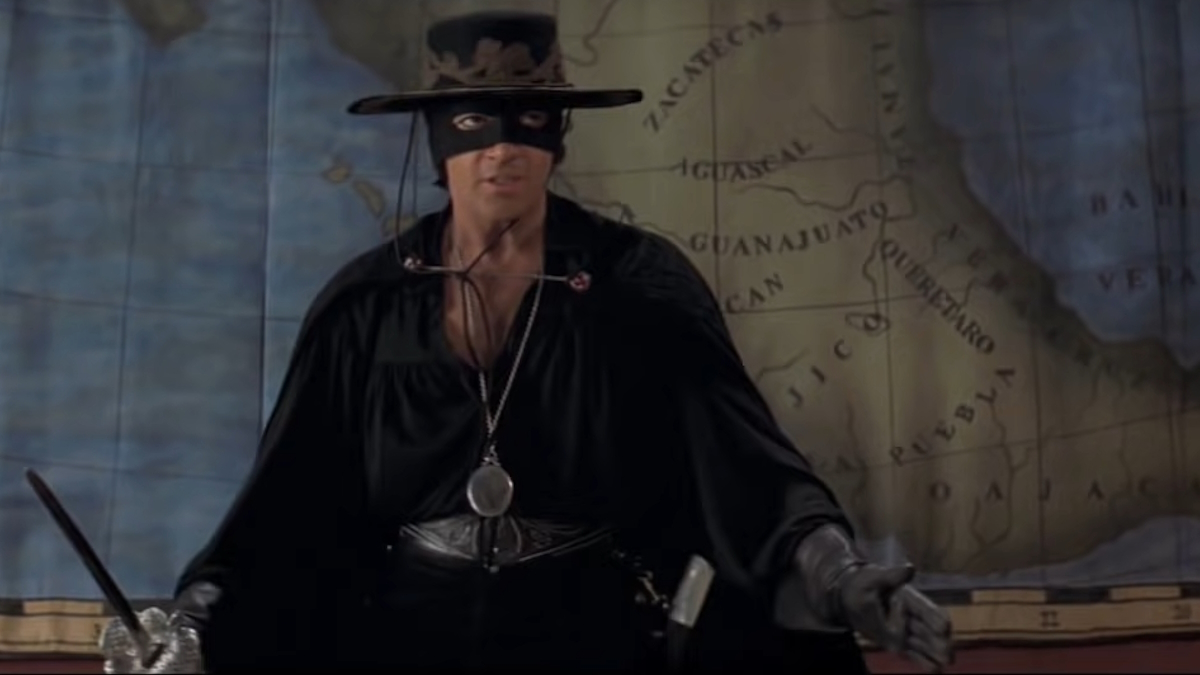
One of the most renowned Spanish actors and sex symbols in Hollywood, Antonio Banderas broke through internationally after starring in some of director Pedro Almodovar’s hit films in Spain. Despite knowing minimal English (he memorized most of his early scripts phonetically), he received critical praise for movies like The Mambo Kings, Philadelphia, and Interview with the Vampire. In 1995, he led Robert Rodriguez’s Western action movie Desperado, proving his leading man mettle. In 1998, he starred in the pulp superhero blockbuster The Mask of Zorro. By the 21st century, he expanded to family friendly fare, with roles in the Spy Kids and Shrek franchises.
28. Angela Bassett
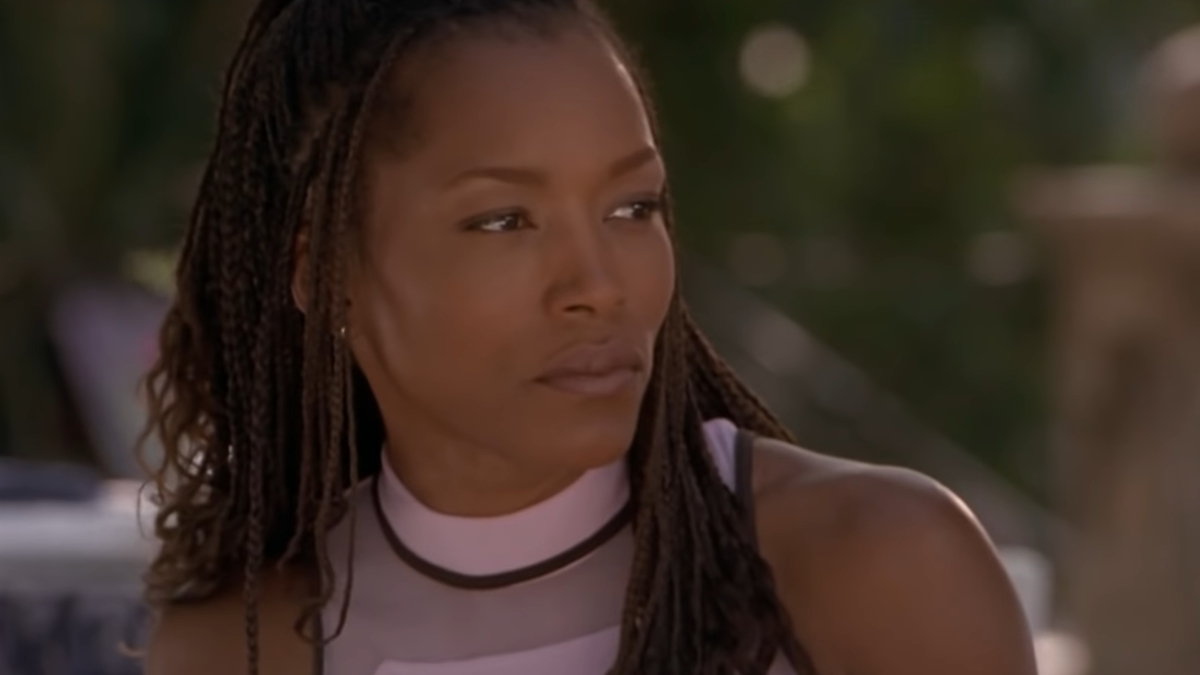
Angela Bassett was already a working actor known for starring in searing dramas like Boyz N the Hood and Malcolm X. But after her breakthrough Golden Globe-winning performance playing real-life singer Tina Turner in What’s Love Got to Do With It, Angela Bassett became unstoppable. While the mid-90s had hits and misses like Waiting to Exhale and Vampire in Brooklyn, the late 90s saw further acclaim for Bassett through her lead role in the rom-com How Stella Got Her Groove Back, playing a 40-something single woman who starts a fling with a much younger man. Her success continued well into the 2020s, with an Oscar nomination for her performance in the Marvel superhero epic Black Panther: Wakanda Forever.
27. Uma Thurman
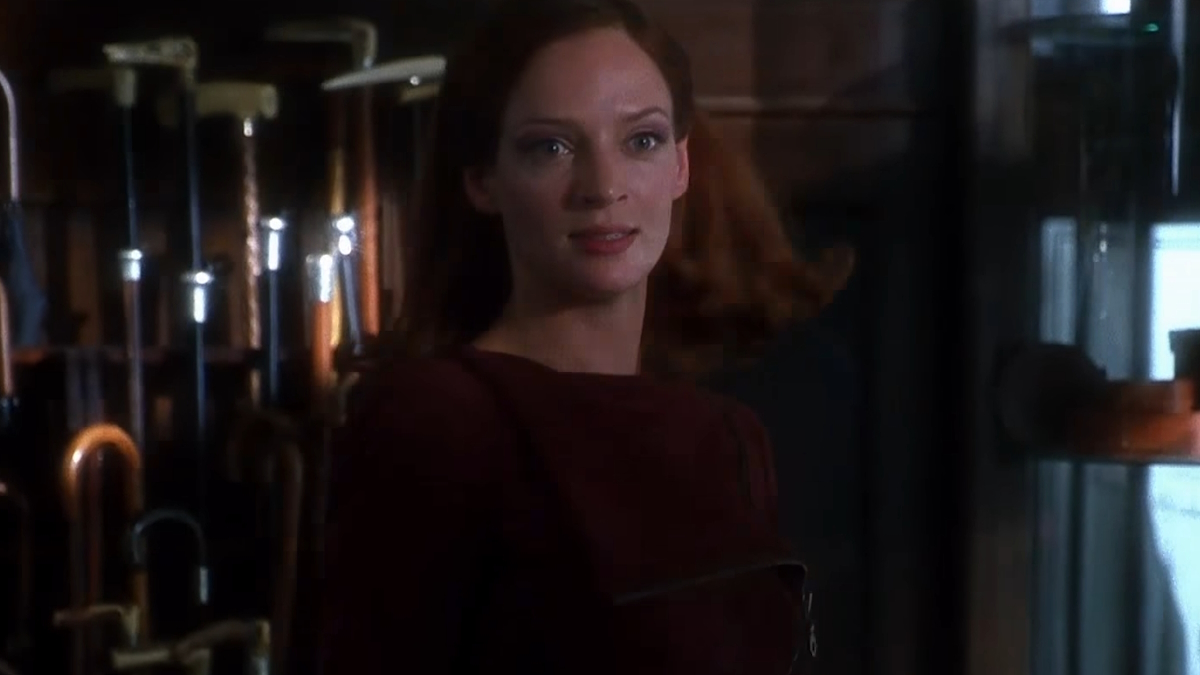
Following her cover appearances on British Vogue, Uma Thurman successfully transitioned into acting in the late 1980s. She soon earned widespread recognition for her role as Mia Wallace, a gangster’s wife, in Quentin Tarantino’s seismic 1994 picture Pulp Fiction. The rest of the decade saw Thurman dominate the screen, with movies like A Month by the Lake, Beautiful Girls, The Truth About Cats & Dogs, Gattaca, and The Avengers (not the Marvel one). Thurman’s star status kept going in the 2000s, with her lead role in the hit Kill Bill duology.
26. Ralph Fiennes

Hailed as one of Britain’s finest actors, Ralph Fiennes made his film debut in the 1992 movie Emily Brontë's Wuthering Heights. A year later, his performance as a Nazi war criminal in Steven Spielberg’s Schindler’s List earned him widespread recognition, with a nomination for an Academy Award. He was again celebrated for his performance in the 1996 film The English Patient. His other movies of the 1990s include Quiz Show, Strange Days, Oscar and Lucinda, The Avengers (still not the Marvel one), and The End of the Affair. In the 2000s, Fiennes would enjoy lasting recognition as the evil Voldemort in the blockbuster Harry Potter film series.
25. Winona Ryder
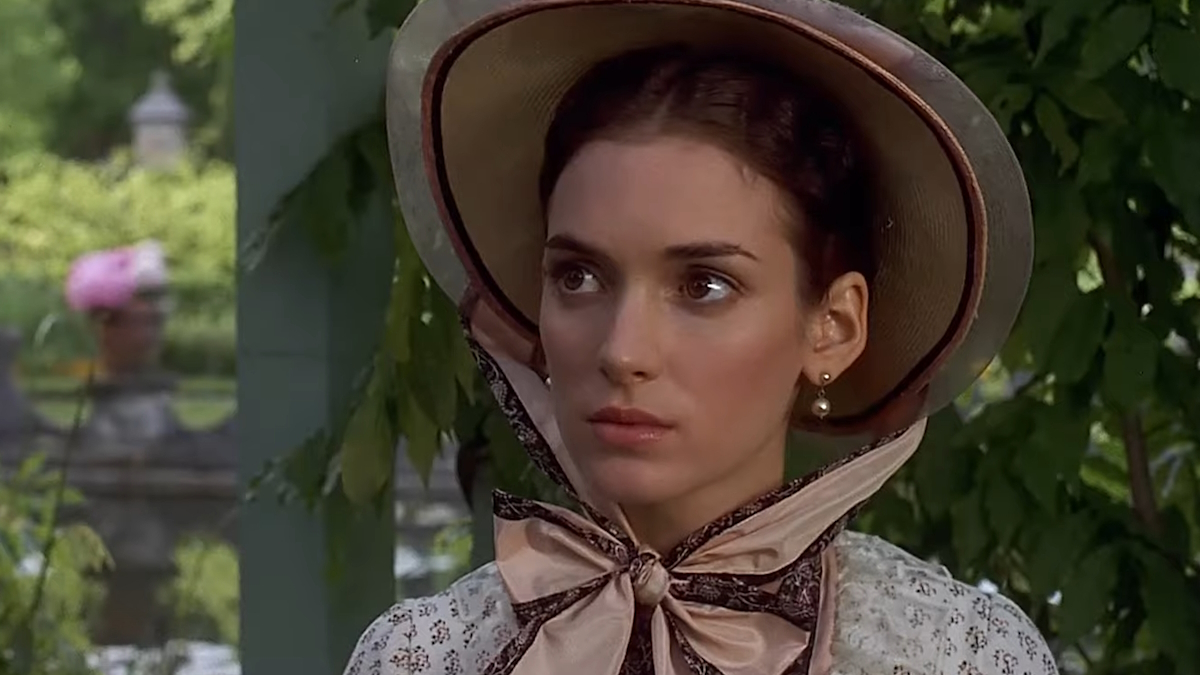
After gaining attention in the mid-1980s, Winona Ryder went on to become one of the biggest Hollywood stars the 1990s saw. Her biggest features of the decade include Mermaids, Edward Scissorhands, Bram Stoker’s Dracula, The Age of Innocence, Little Women, Reality Bites, The Crucible, and Girl, Interrupted. The mid-90s also saw Ryder receive some Oscar recognition, with nominations for The Age of Innocence and Little Women. Following a hiatus in the 2000s, Ryder revitalized her career, eventually leading to a starring role in the Netflix mega-hit Stranger Things.
24. Susan Sarandon

A celebrated actress and activist, Susan Sarandon has enjoyed a prolific career in Hollywood for over five decades. After starring in the cult classic musical The Rocky Horror Picture Show, Sarandon’s career matured throughout the 1990s, starting with Ridley Scott’s road trip epic Thelma & Luise. The rest of the decade saw Sarandon deliver some of her finest work, with movies like Lorenzo’s Oil, The Client, Dead Man Walking, and Stepmom decorating her with awards. (She won the Oscar for Best Actress, for Dead Man Walking.)
23. Halle Berry
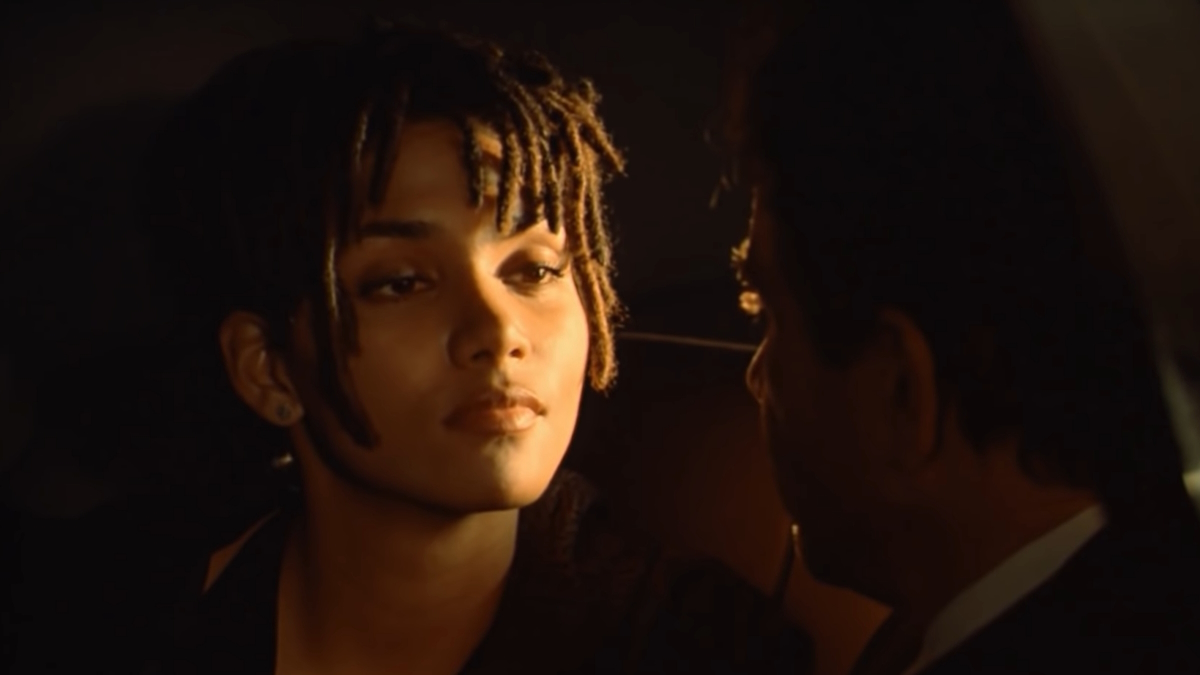
A model and Miss USA runner-up turned actress, Halle Berry emerged in the 1990s as one of the industry’s newest (and highest-paid) stars. Following a breakthrough performance in the 1992 rom-com Boomerang, her roles in movies like The Flintstones, Bulworth, as well as the made-for-TV movie Introducing Dorothy Dandridge made her one of the most buzz-worthy actresses at the dawn of the 21st century. Berry reached the peak of her fame after 2000, and after some career setbacks in the 2010s, she re-emerged with roles in franchise sequels like Kingsman: The Golden Circle and John Wick: Chapter 3 – Parabellum.
22. Gary Oldman
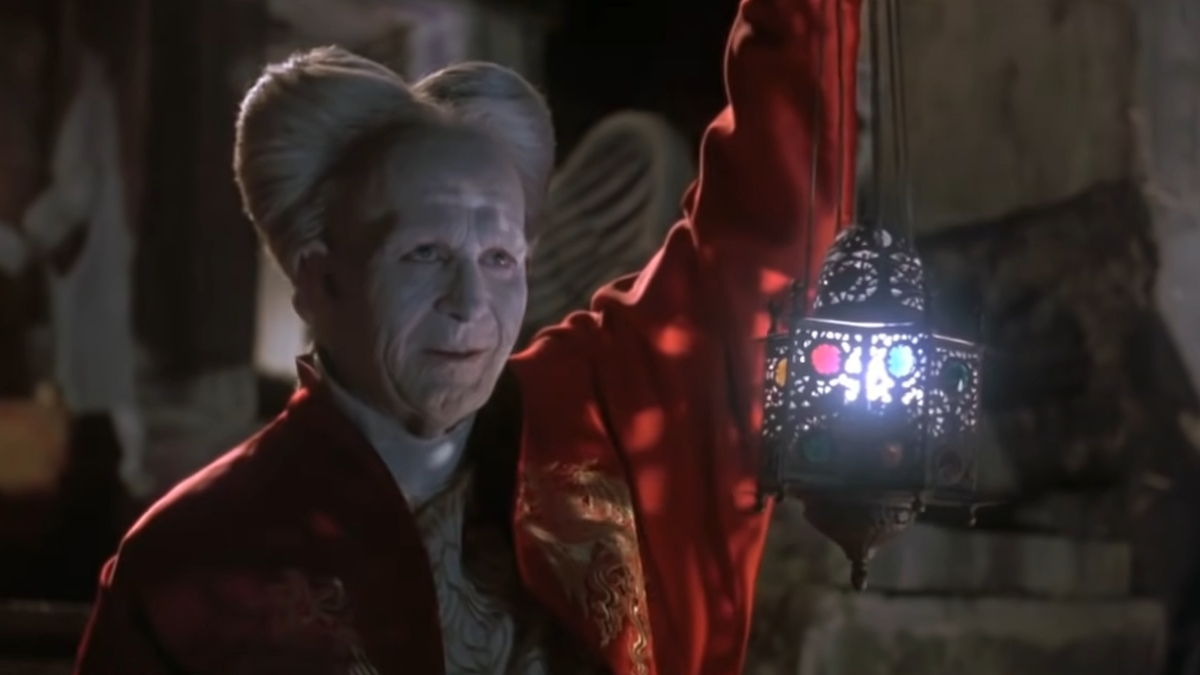
A highly decorated thespian whose movies have grossed billions at the box office, Gary Oldman started his career in the 1970s and made his feature film debut in the 1982 movie Remembrance. After playing Rosencrantz in the 1990 Shakespere spoof Rosencrantz & Guildenstern Are Dead, Oldman became a prominent figure in Hollywood with roles in movies like State of Grace, JFK (where he played Lee Harvey Oswald), Bram Stoker’s Dracula, True Romance, Léon: The Professional, The Fifth Element, and Air Force One. In the 2000s, he entered the superhero sphere as Gotham City policeman Commissioner Gordon in Christopher Nolan’s game-changing Dark Knight trilogy.
21. Philip Seymour Hoffman
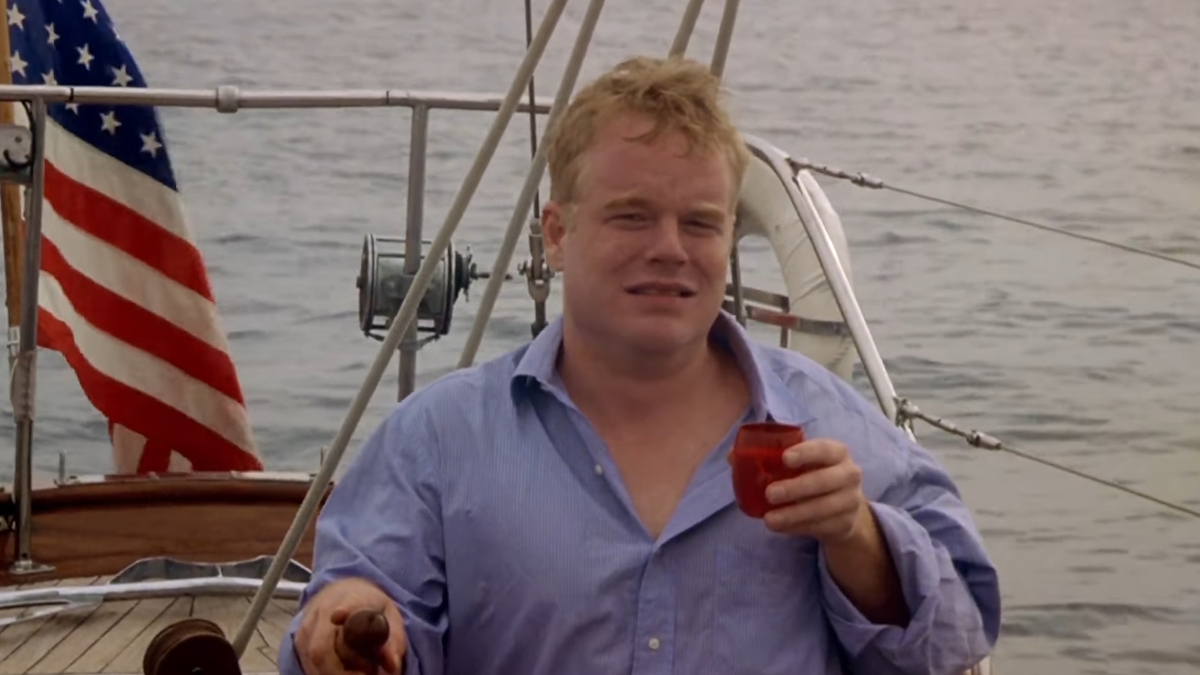
Arguably one of the greatest character actors of all time, Philip Seymour Hoffman burst onto Hollywood in the 1990s through supporting roles in movies like Scent of a Woman, Boogie Nights, Happiness, The Big Lebowski, Magnolia, Twister, Patch Adams, The Talented Mr. Ripley, and more. His fame grew significantly in the 2000s, appearing in both acclaimed dramas and studio blockbusters (including the Hunger Games film series) until his death in 2014. During his career, Hoffman was praised for his versatility and ability to fully inhabit parts. His dedication sometimes included physical changes to his body too, sometimes losing or gaining weight or changing his hair. In 2006, Hoffman told Slate about his work: “I went out looking for people who have a struggle and a fight to tackle. That’s what interests me.”
20. Jodie Foster

Following her breakthrough as a child actress and maturing into adult-oriented roles after college, Jodie Foster became a Hollywood mega-star after her role as FBI trainee Clarice Starling in 1991’s The Silence of the Lambs. Her performance catapulted Foster to the upper echelons of Hollywood, with the rest of the 1990s seeing her work in movies like Shadows and Fog, Sommersby, It Was a Wonderful Life, Contact, and Anna and the King. In the 2010s, Foster transitioned into directing, with movies like The Beaver, Money Monster, and episodes of shows like Orange Is the New Black, House of Cards, and Tales From the Loop.
19. Kevin Spacey
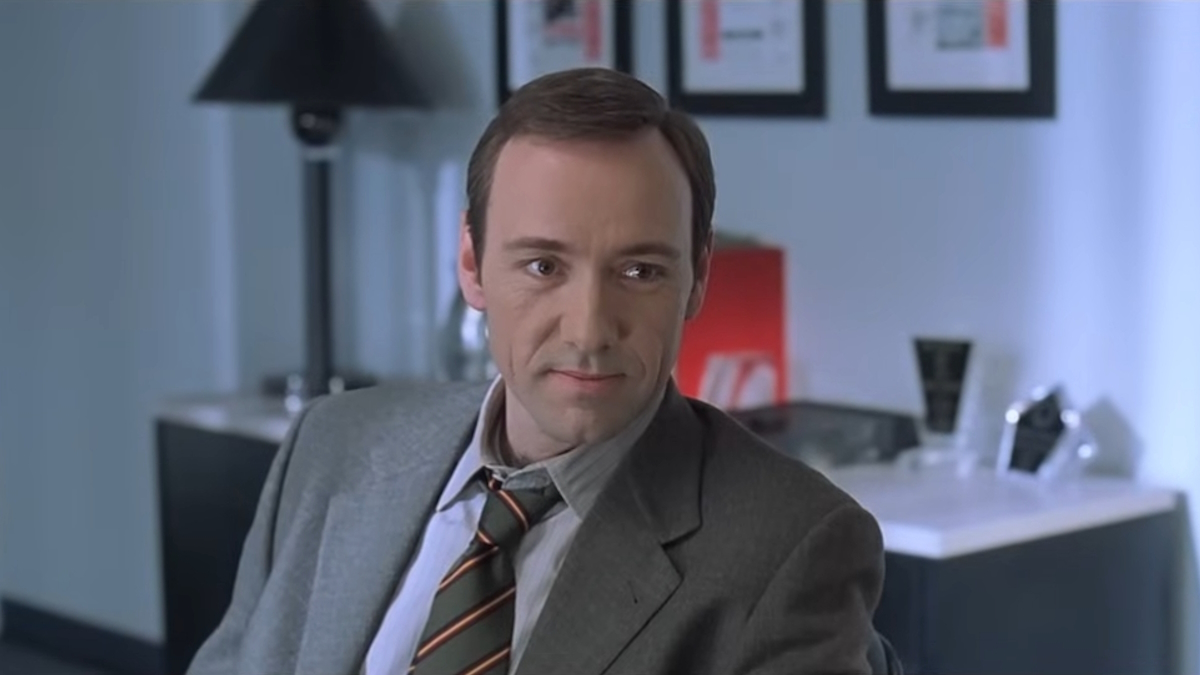
A decorated actor before horrific sexual misconduct allegations were levied against him in 2017, Kevin Spacey made his feature film debut in the 1986 movie Heartburn, as a nameless criminal. In the first half of the 1990s, he started appearing in more films, such as the 1992 drama Glengarry Glen Ross and the 1994 Christmas crime comedy The Ref. In 1995, his career breakthrough came through the neo-noir movie The Usual Suspects, for a part that won him an Oscar. After playing the serial killer John Doe in David Fincher’s Seven, Kevin Spacey became a Hollywood heavyweight; he capped off the decade in Sam Mendes’ American Beauty. His career flourished in the 2000s, reaching its apex via his lead role in the Netflix serial drama House of Cards.
18. John Travolta
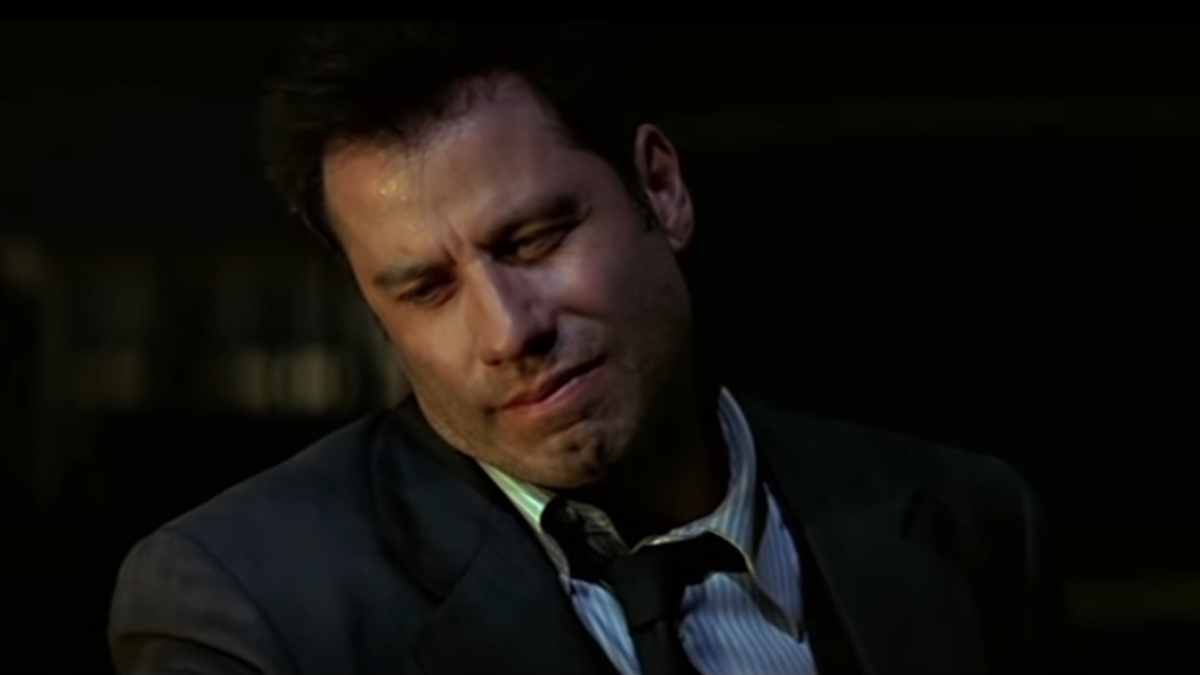
After dancing his way to stardom in Saturday Night Fever, John Travolta enjoyed the 1980s in commercially successful hits. Critically, however, Travolta was in stagnation. It wasn’t until 1994’s Pulp Fiction, in which Travolta played against his popular image in his role as a mob hitman, that Travolta was back in the graces of audiences and critics. Travolta packed the ‘90s with more movies, like Get Shorty, White Man’s Burden, Broken Arrow, Phenomenon, Michael, Face/Off, A Civil Action, Primary Colors, and The General’s Daughter.
17. Morgan Freeman

Though Morgan Freeman started his career in the 1960s, it wasn’t until 1989 when Freeman’s profile became inescapable. After starring in several hit movies in 1989, like Glory, Driving Miss Daisy, Lean On Me, and Johnny Handsome, Freeman had all the momentum to seize his stardom in the 1990s. Some of his most celebrated work today were released in the 1990s, including Unforgiven, The Shawshank Redemption, Outbreak, Seven, Amistad, and Deep Impact, as well as providing narration to several documentaries including The Long Way Home. He also made his directorial debut in 1993, with his movie Bopha!, though the movie bombed at the box office. Morgan Freeman is remembered today for his distinct, dignified speaking voice and for playing worldly characters who command a lifetime of experience and wisdom.
16. Jim Carrey
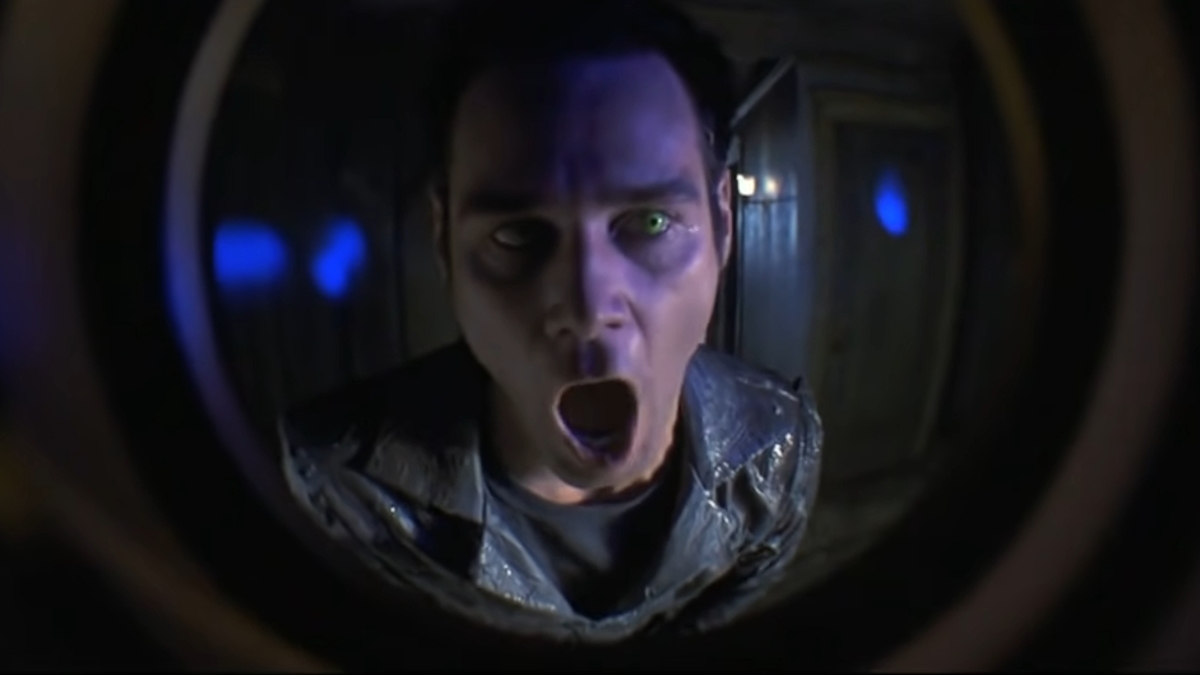
A comedian who made slapstick cool again, Jim Carrey is undeniably one of the biggest movie stars of the 1990s. After a role in the sketch comedy show In Living Color, Jim Carrey broke out oin his own in a string of hits, all released in 1994: Ace Ventura: Pet Detective, The Mask, and Dumb and Dumber. Seemingly overnight, Jim Carrey was inescapable, with more hit movies following like Batman Forever, The Cable Guy, and Liar Liar. By the end of the decade, Carrey started expanding to more dramatic fare, with a starring role in Peter Weir’s hit psychological drama The Truman Show. Carrey’s performance earned critical praise, taking home a Golden Globe for his performance. In 1999, he starred in Man on the Moon, a biographical drama about stand-up comic Andy Kaufman. Carrey was so committed to playing Kaufman that the experience changed him forever; he recounted the experience in a retrospective documentary Jim & Andy: The Great Beyond in 2017.
15. Matt Damon
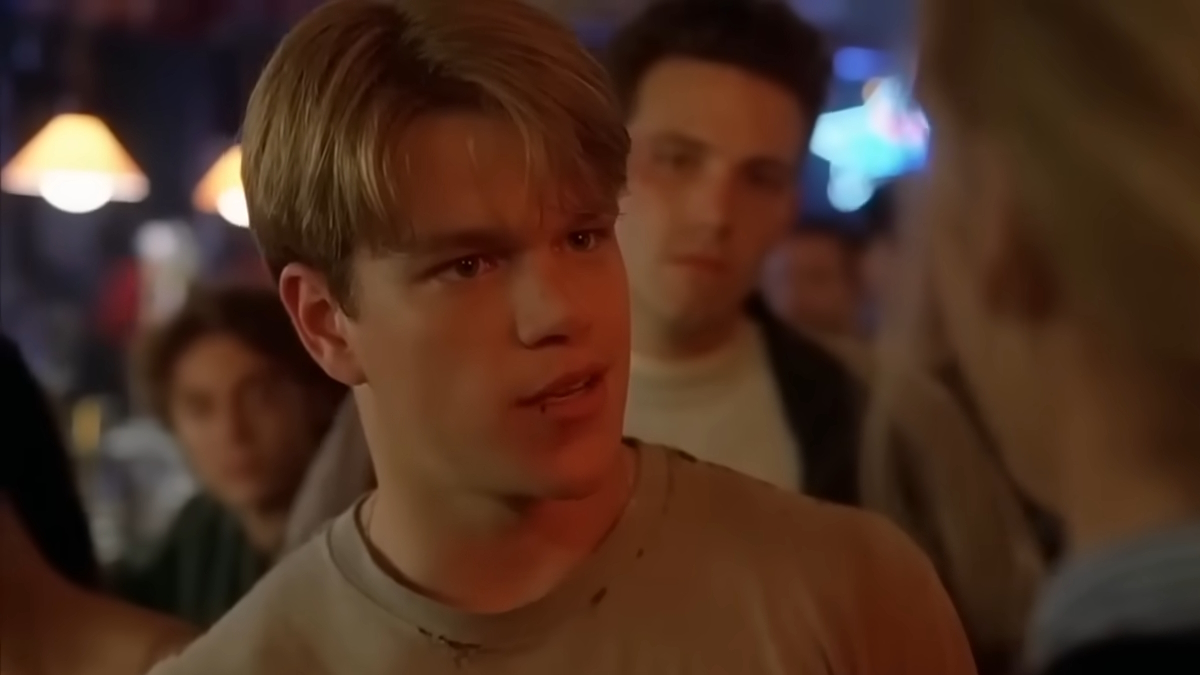
Matt Damon and childhood best friend Ben Affleck both struggled as actors in the early 1990s. For Damon, he had minor roles in movies like Mystic Pizza, Field of Dreams, and Courage Under Fire. In 1997, however, his career changed forever through a starring role in Gus Van Sant’s drama Good Will Hunting, which he also wrote with Affleck and earned both an Oscar award (for best Screenplay) and Oscar nomination (for Best Actor). Following more parts in hits like Saving Private Ryan, Rounders, Dogma, and Talented Mr. Ripley, Matt Damon’s stardom became permanent, and by the 2000s Matt Damon was one of Hollywood’s biggest stars. He must sure like them apples.
14. Kevin Costner

Kevin Costner kicked off the 1990s as one of Hollywood’s biggest stars, with parts in big studio movies like the Oscar-winning Dances With Wolves (which Costner also directed), Revenge, Robin Hood: Prince of Thieves, A Perfect World, and the mega-hit sensation The Bodyguard. The big budget sci-fi Waterworld, however, started a minor career downturn for Costner, whose subsequent pictures – like The Postman, Tin Cup, and Message in a Bottle – drew lesser attention and acclaim. After continuing work into the 2000s, Costner would again be on top with his lead role in the hit television series Yellowstone.
13. Johnny Depp
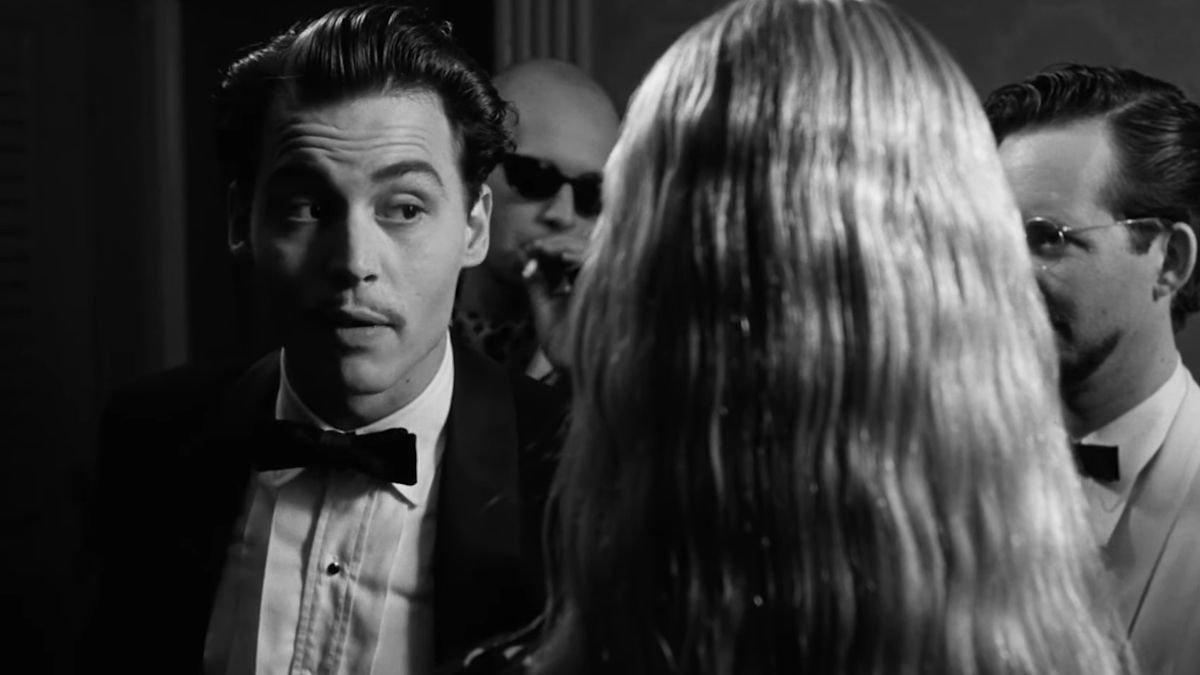
Unsatisfied by his teen idol status from the series 21 Jump Street, Johnny Depp became more cautious about the roles he selected throughout the 1990s. His hypervigilance over his reputation led to contrasting results, with a mixture of hits like Edward Scissorhands, the cult classic Cry-Baby, the more polarizing Benny & Joon, and What’s Eating Gilbert Grape – for which his co-star Leonardo DiCaprio earned more attention. It wasn’t until Depp starred in Tim Burton’s Ed Wood, a biographical drama about the cult filmmaker, that Depp said he felt “rejuvenated” as an actor, in a Washington Times interview. While the rest of the ‘90s still had mixed results for Depp, at least in terms of box office, critics adored his work in movies like Donnie Brasco and Fear and Loathing in Las Vegas. He ended the decade co-starring in Tim Burton’s gothic horror The Legend of Sleepy Hollow, another box office hit.
12. Bruce Willis
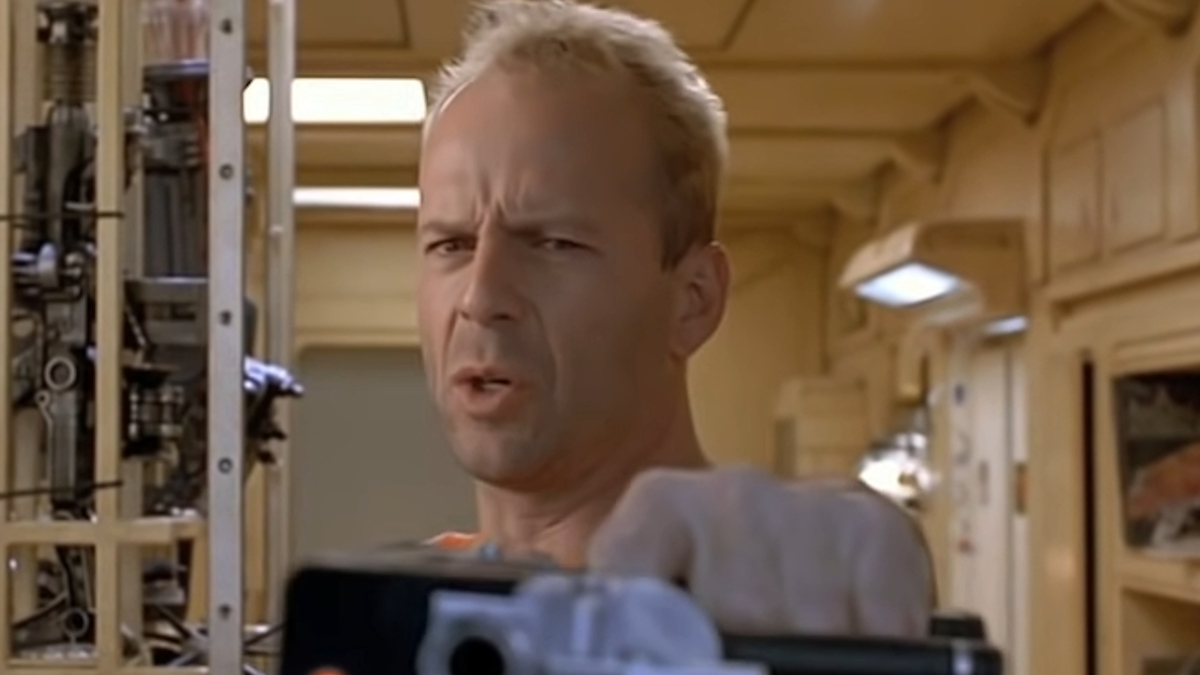
After saving Christmas from terrorists at Nakatomi Plaza, Bruce Willis kicked off the 1990s by doing it again, starring in Die Hard 2 in 1990. Despite this strong start, the underwhelming reception to his next few movies – like The Bonfire of the Vanities, Hudson Hawk, and Color of Night – set back his momentum a little. (It should be said that he still had some hits in this period, like The Last Boy Scout and Striking Distance, they were just outnumbered by the misses.) After co-starring in Pulp Fiction, Willis’ career was given new life, with movies like Die Hard with a Vengeance, 12 Monkeys, and The Fifth Element ensuring that his face was always seen on the shelves of Blockbuster Video. The rest of Willis’ career is characterized by ebbs and flows of successes and slumps. In 2023, Willis retired from acting due to his deteriorating health from frontotemporal dementia.
11. Keanu Reeves
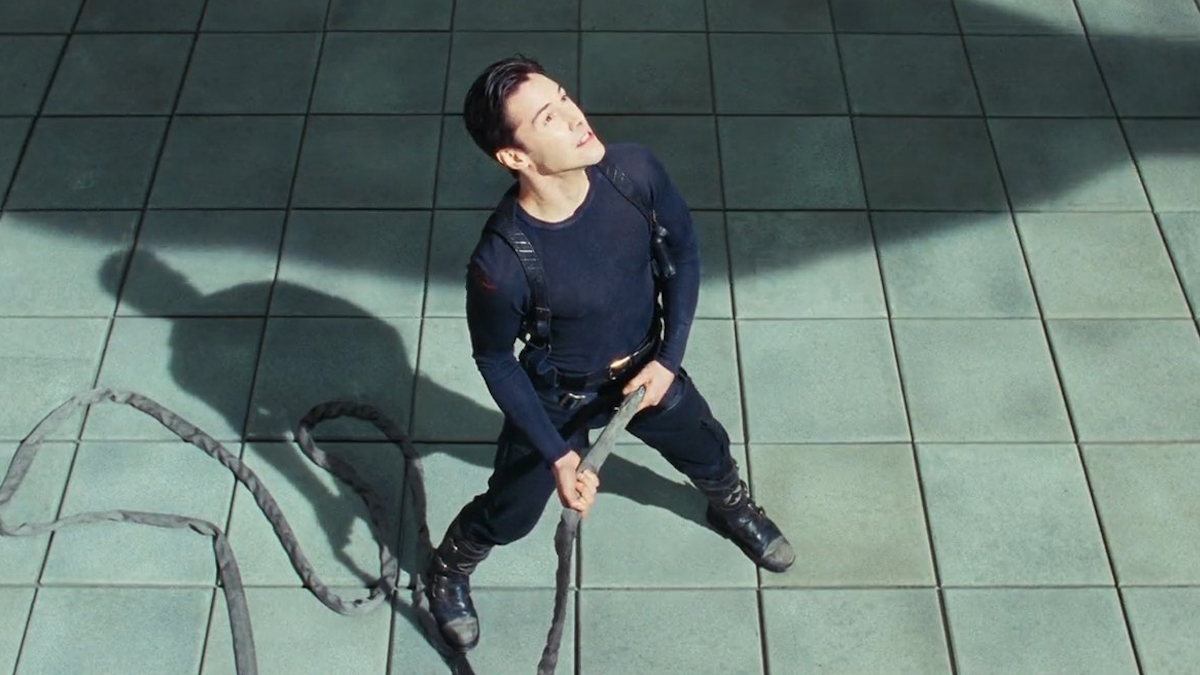
Keanu Reeves nearly did not go by his actual name. At the beginning of his career in the 1980s, agents advised him to pick a different stage name, because “Keanu” sounded too “ethnic.” But thank the heavens that Reeves kept his name, because its distinctness as allowed his whole persona to stand out in Hollywood. After achieving fame in the juvenile Bill & Ted comedies, Reeves began to mature with movies like My Own Private Idaho, the action thriller Point Break, and a lead role in Francis Ford Coppola’s Bram Stoker’s Dracula. After starring in 1994’s Speed, opposite Sandra Bullock, Reeves became bulletproof even with middling fare like A Walk in the Clouds, Johnny Mnemonic, and Chain Reaction. In 1999, Keanu Reeves became “The One” after The Matrix, and his career has never been the same after that.
10. Ben Affleck
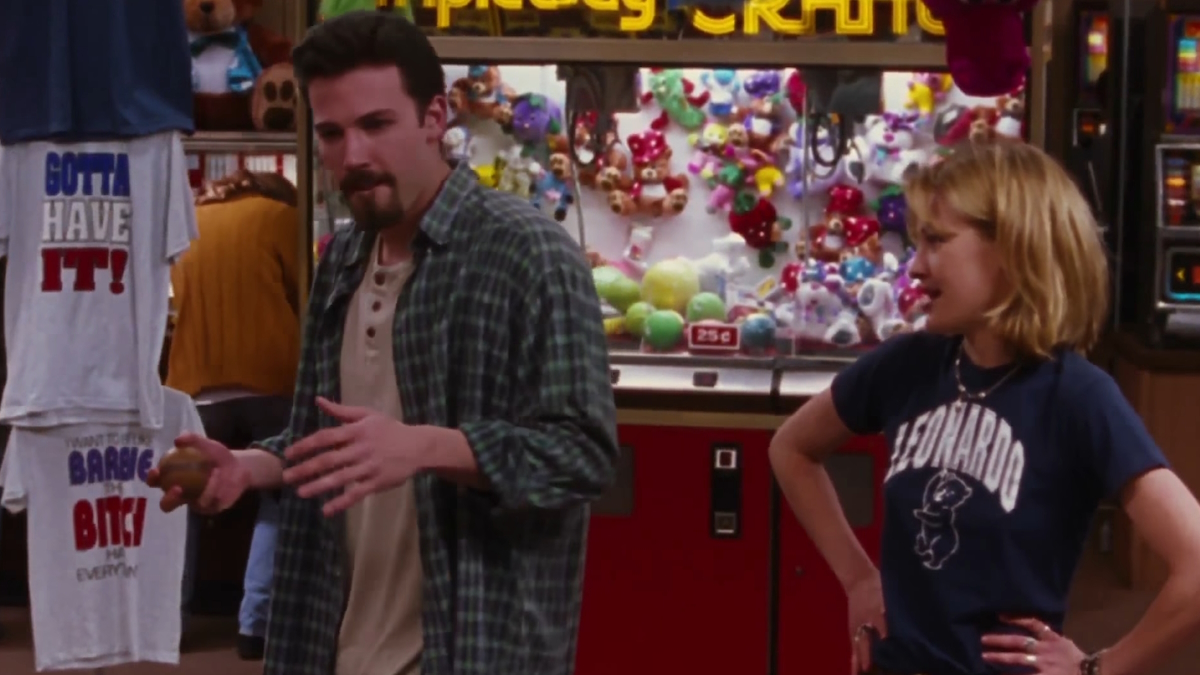
Like his best friend for life Matt Damon, Ben Affleck went from Boston to Hollywood and cut his teeth with small uncredited roles in movies like Field of Dreams and Buffy the Vampire Slayer. While Affleck slowly started gaining attention through comedies like Mallrats, Glory Daze, and Chasing Amy, he joined Damon on the road to success after they co-wrote and co-starred in Good Will Hunting (winning Oscars in the process). In 1998, Affleck’s career changed forever from his lead role in the sci-fi disaster blockbuster Armageddon. While his career is full of great movies (and some not so great, admittedly), he will always be the bomb in Phantoms, yo.
9. Will Smith
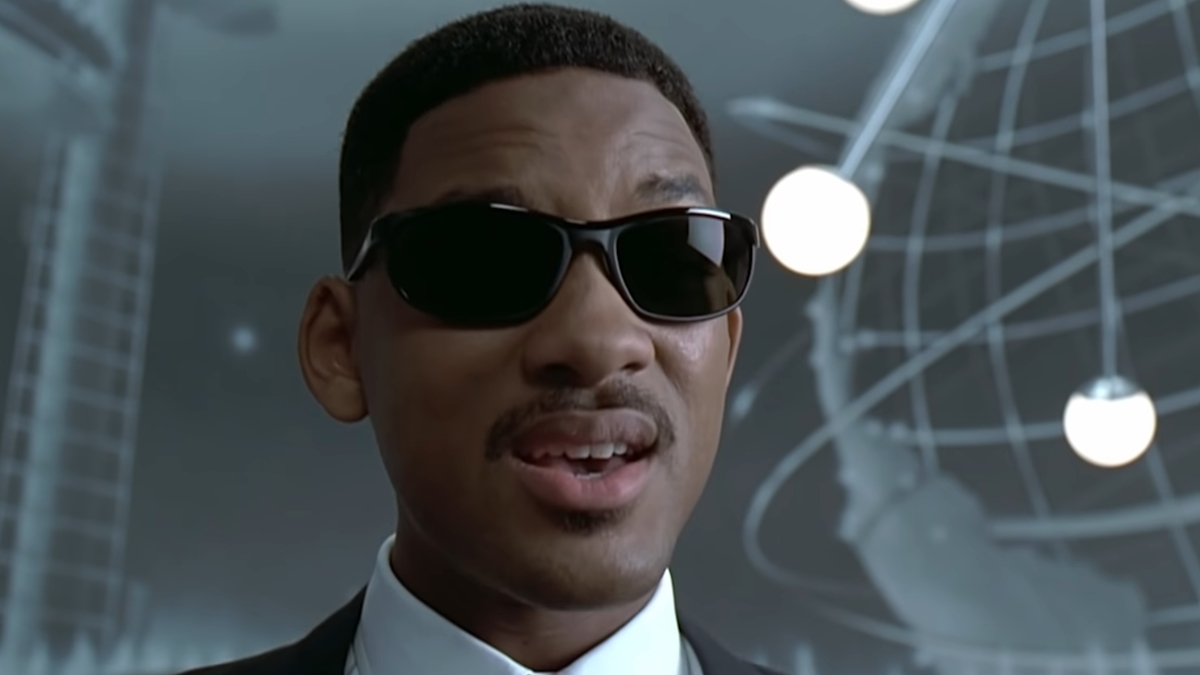
Leveraging his TV sitcom fame to the big screen, Will Smith was an unstoppable mega-star in the 1990s as both a musician and actor. In 1995, he co-starred with Martin Lawrence in Michael Bay’s buddy cop action hit Bad Boys, and a year later led an all-star ensemble in Roland Emmerich’s alien invasion blockbuster Independence Day. In 1997, he again fought aliens in Men In Black, as a rookie NYPD officer who joins a secret organization that polices exta-terrestrials hiding on Earth. While Smith’s decision to star in the utterly bizarre action movie Wild Wild West instead of The Matrix maybe wasn’t the smartest choice, its failure hardly slapped him in the face. Smith won his first Oscar in 2022, for his role in King Richard, though his win wasn’t what anyone was talking about after that year’s ceremony.
8. Robin Williams
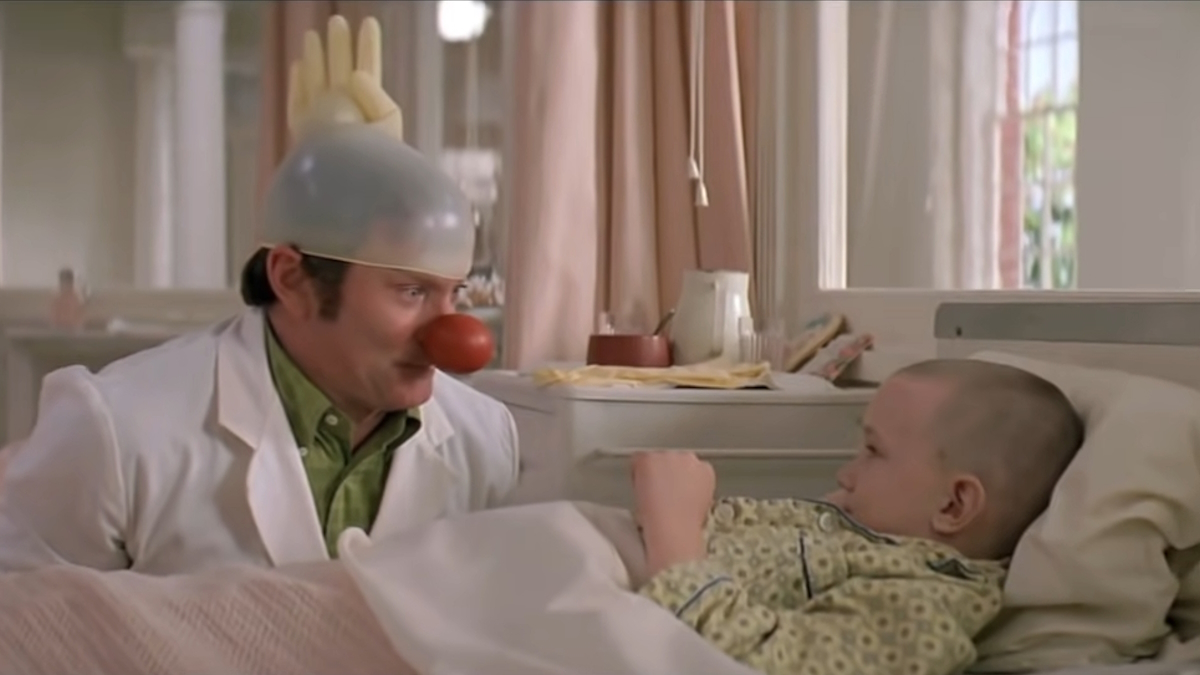
In the 1980s, Robin Williams was still best known for his starring role in the TV sitcom Mork & Mindy. That all changed by the 1990s, when his screen career took off through movies like Cadillac Man, Awakenings, The Fisher King (which earned him an Oscar nomination), and Steven Spielberg’s beloved millennial fantasy Hook. In 1992, Williams’ voice-over for the Disney hit Aladdin raised the heat on his stardom, and after 1993’s Mrs. Doubtfire he was thermonuclear. As Williams turned out comedic hits for both adults and families, he also expanded into dramas, with movies like Being Human, Jack, The Secret Agent, Patch Adams, and Good Will Hunting, for which he won an Oscar. Williams died of suicide in 2014, which inspired an outpouring of grief by his fans and peers around the world.
7. Julia Roberts
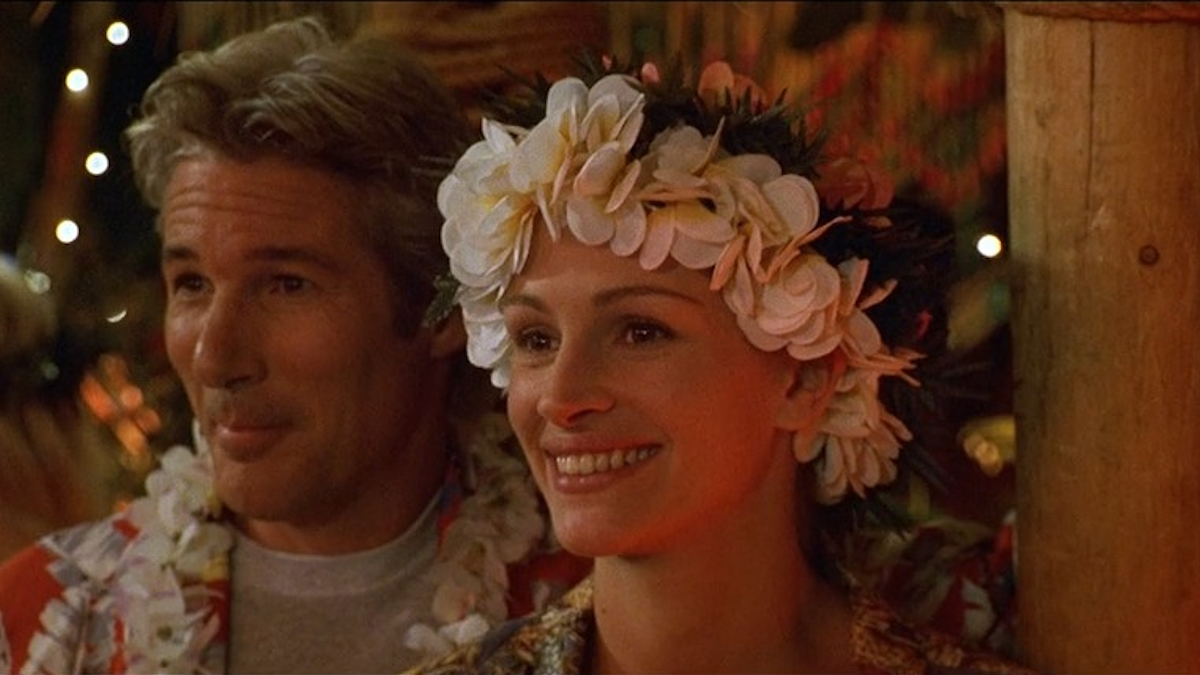
One of the most beloved screen actresses in modern Hollywood history, Julia Roberts emerged in the 1980s and became a bona fide star in the 1990s. Her career hot streak began with Pretty Woman in 1990, playing a sex worker with a heart of gold who falls in love with an affluent businessman (played by Richard Gere). After more movies like the cult sci-fi thriller Flatliners and the thriller Sleeping with the Enemy, Roberts took a brief hiatus before becoming an even bigger star, through movies like The Pelican Brief (opposite Denzel Washington) and My Best Friend’s Wedding. While many of her movies in the 1990s weren’t universally well-received, her stardom and acting prowess was always without question. In 1999, she starred in two more rom-com hits, Notting Hill and Runaway Bride, that gave her all the star power she’d need to thrive even more in the 2000s.
6. Meg Ryan
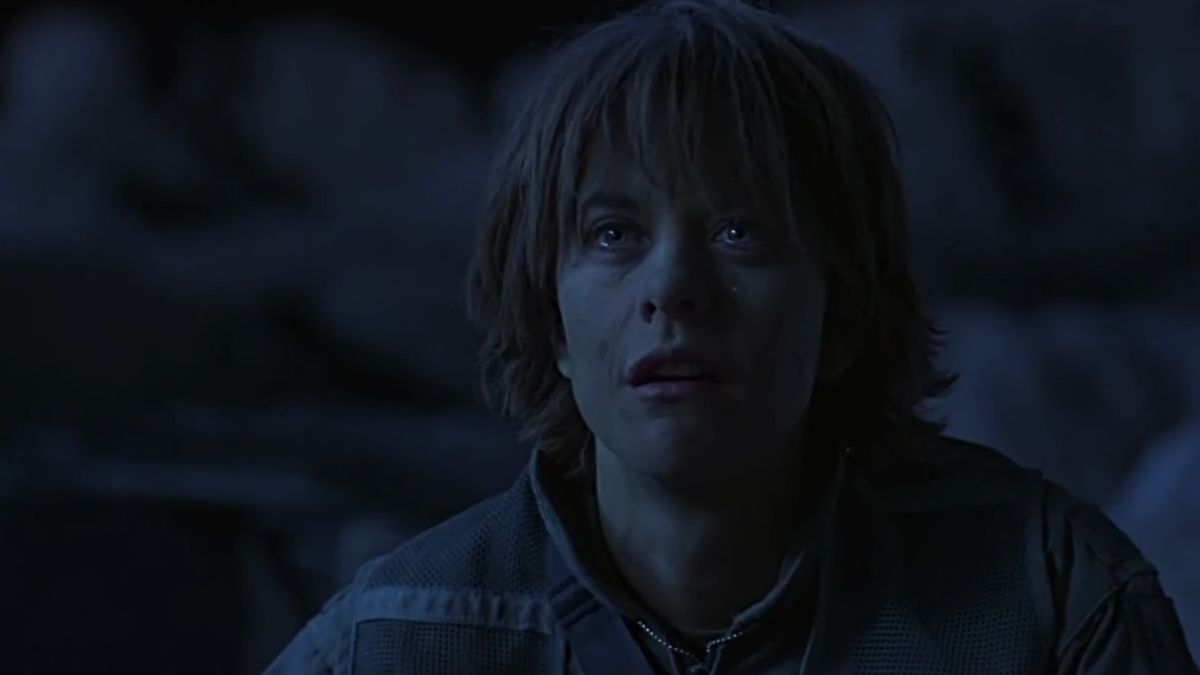
After making the most complicated restaurant orders (and faking certain bodily functions) in When Harry Met Sally, Meg Ryan rose to superstardom with more hits like Joe Versus the Volcano, Sleepless In Seattle, When a Man Loves a Woman, French Kiss, Courage Under Fire, You’ve Got Mail, Anastasia, and City of Angels. There is perhaps no one else who defines 1990s romance like Ryan, whose performances as fiercely independent women who still succumb to the powers of love have won over audiences everywhere for decades.
5. Denzel Washington
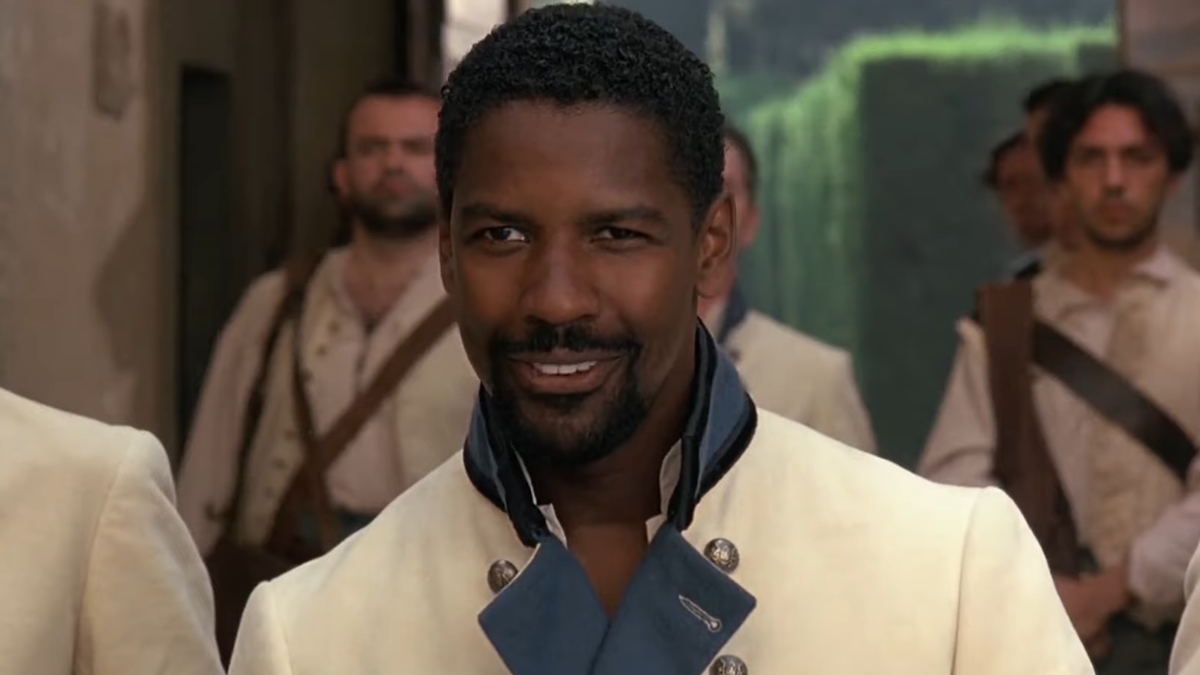
Coming from the stage and TV shows like St. Elsewhere, Denzel Washington broke into silver screen fame after an Oscar-winning supporting role in the 1989 Civil War epic Glory. From there, Denzel Washington became one of the biggest and most bankable Black movie stars in Hollywood, with movies like Mo’ Better Blues, Mississippi Masala, Much Ado About Nothing, Philadelphia, The Preacher’s Wife, The Pelican Brief, Devil in a Blue Dress, and Courage Under Fire. His starring role in Spike Lee’s Malcolm X, as the real-life activist, earned Washington further recognition as a leading man. Washington’s fame thrived well into the 2020s, having earned more Oscar nominations for movies like Flight, Fences, Roman J. Israel, Esq., and The Tragedy of Macbeth.
4. Tom Hanks

Though Tom Hanks enjoys some popular recognition as “America’s Dad,” the complete body of Hanks’ work speaks to a most versatile performer who can inhabit both good-natured men and morally ambiguous antiheroes alike. Almost immediately after reaching career heights from the 1988 hit Big, Hanks entered the ‘90s on a career downturn, with middling movies like Turner & Hooch and Radio Flyer. In 1992, his career turned around with A League of Their Own, which put Hanks back on his hot streak with movies like Sleepless in Seattle, Philadelphia, Forrest Gump, Apollo 13, and the groundbreaking animated family hit Toy Story. He made his feature directing debut with 1996’s That Thing You Do!, and again won over audiences and critics in his role in Steven Spielberg’s Saving Private Ryan. The last movie Hanks starred in the 1990s was The Green Mile, another significant hit in his already impeccable filmography.
3. Samuel L. Jackson
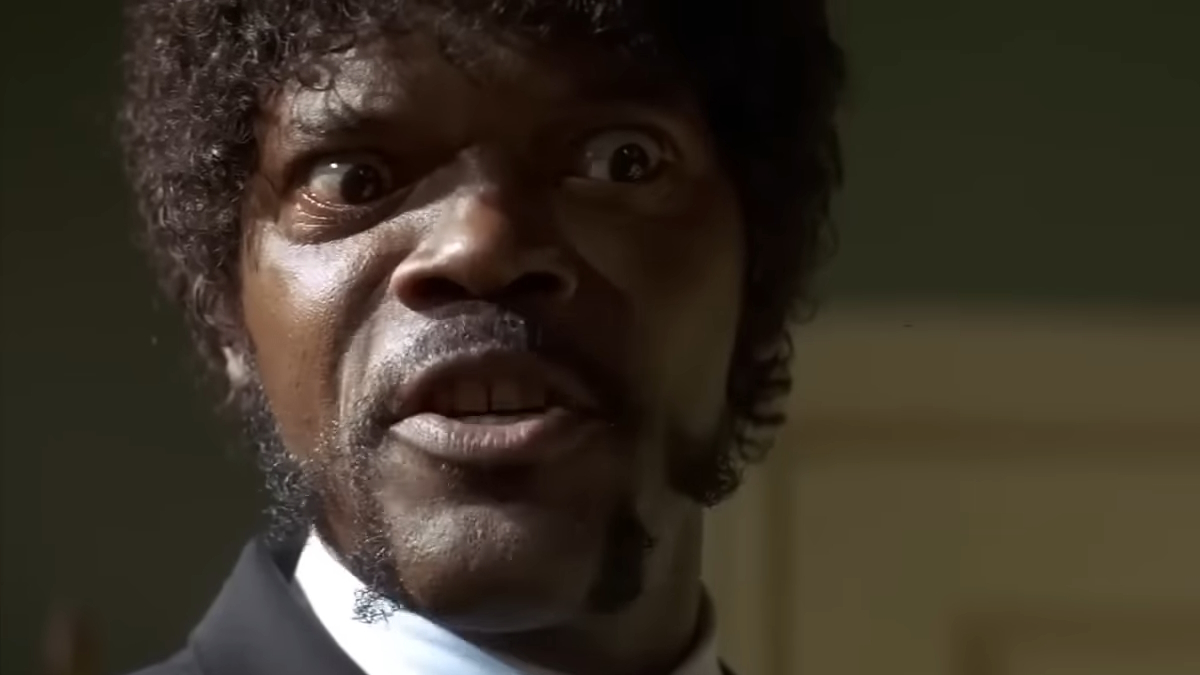
Though Samuel L. Jackson had a surprisingly prolific acting career by the end of the 1980s – including a small part in Martin Scorsese’s Goodfellas – Jackson struggled in his various substance addictions. After completing rehab, Jackson played the role of an addict in Spike Lee’s Jungle Fever, his authentic and mesmerizing performance resulting in a lot of attention throughout the industry. (The 1991 Cannes Film Festival even instituted a “Supporting Actor” award just to recognize his work.) After appearing in more movies like Juice, Patriot Games, and Jurassic Park, Jackson’s career was forever decided after his thunderous performance as bombastic hit man Jules Winnfield in Pulp Fiction. Since Pulp Fiction, Samuel L. Jackson has become one of the most prolific actors in cinema history, with over 150 roles across movies that have grossed a combined $27 billion.
2. Tom Cruise
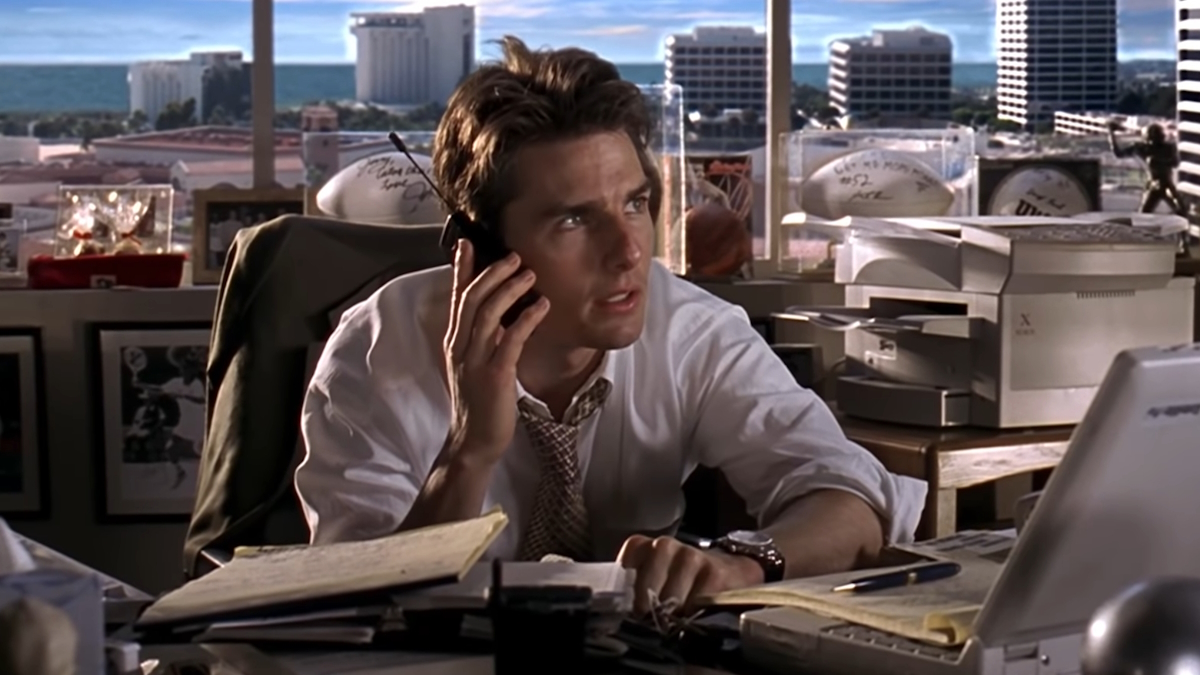
You complete him. After amassing fame in the 1980s, Tom Cruise matured as a powerhouse leading man throughout the 1990s with movies like Days of Thunder, A Few Good Men, The Firm, Interview With the Vampire, Jerry Maguire, and Eyes Wide Shut. In 1996, he starred in the hit summer blockbuster Mission: Impossible, a big screen adaptation of the classic spy TV show. The movie has since spawned multiple sequels spanning three decades. While Cruise’s involvement with the Church of Scientology has drawn controversy, people seem to forget all about that anytime a new Mission: Impossible sequel drops. In 2024, Tom Cruise signed a unique deal with Warner Bros. Discovery to produce both original and franchise-driven projects, a lucrative deal that implies Tom Cruise’s place in Hollywood is more than just what his leading man muscles can muster.
1. Leonardo DiCaprio
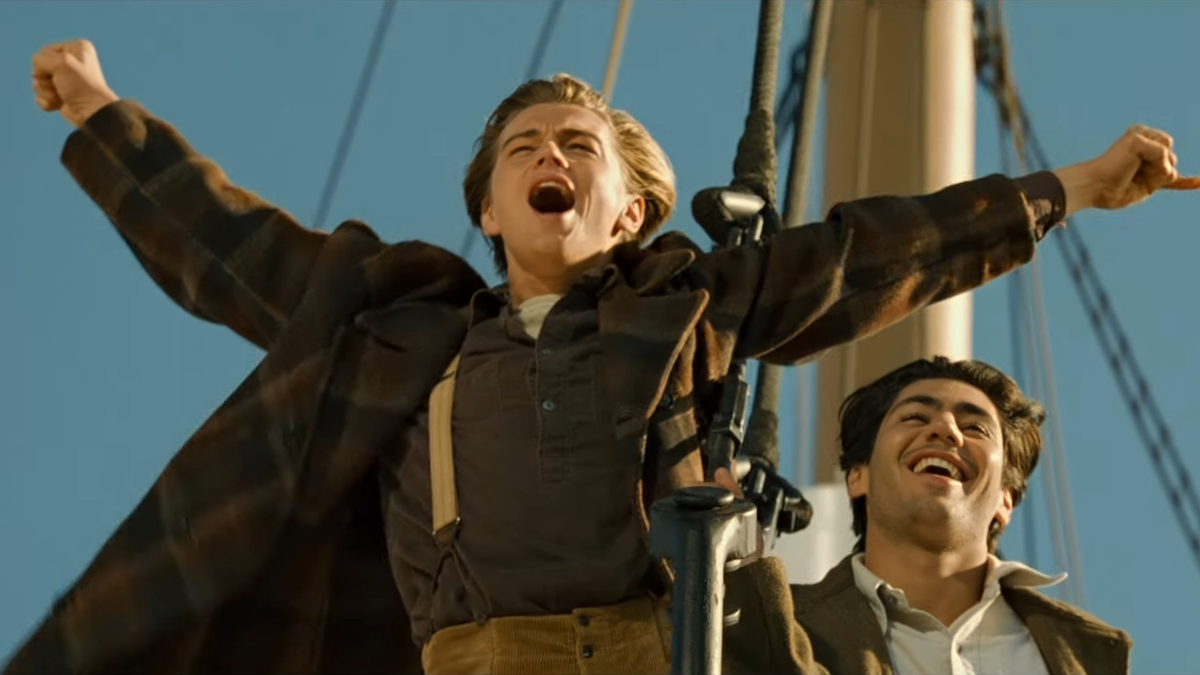
Leonardo DiCaprio made his feature film debut in 1991, in the low-budget horror movie Critters 3. DiCaprio hated the experience so much, he never wanted to make a movie like it again. Two years later, he drew prestigious attention for his part in What’s Eating Gilbert Grape. While the rest of the 1990s saw DiCaprio enjoy status as a teenage heartthrob, his work in movies like The Basketball Diaries, The Quick and the Dead, Total Eclipse, and Romeo + Juliet ensured he was never out of purview from the eyes of critics and Academy voters. In 1997, his career entered new heights through Titanic, James Cameron’s epic drama about a doomed romance on board the historic ship. DiCaprio enjoyed further success in the 2000s, and won his first Oscar for Best Actor through the 2015 thriller The Revenant.

Eric Francisco is a freelance entertainment journalist and graduate of Rutgers University. If a movie or TV show has superheroes, spaceships, kung fu, or John Cena, he's your guy to make sense of it. A former senior writer at Inverse, his byline has also appeared at Vulture, The Daily Beast, Observer, and The Mary Sue. You can find him screaming at Devils hockey games or dodging enemy fire in Call of Duty: Warzone.


